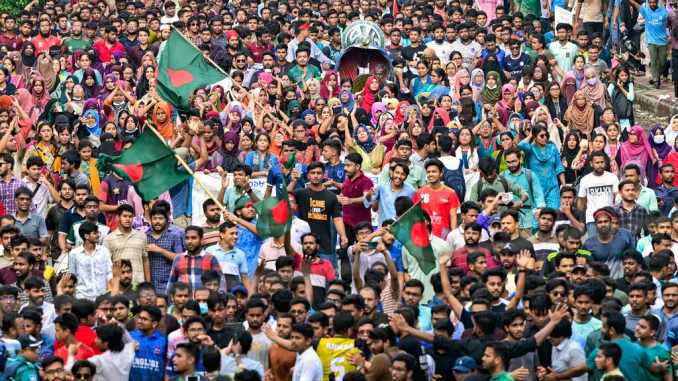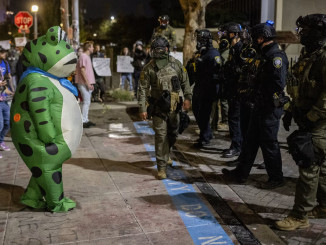
Since the beginning of July, demonstrations and blockades have been taking place in several cities across Bangladesh. The students behind the movement are contesting the quota system for government jobs: this system reserves 30% of positions for the children and grandchildren of those who fought for Bangladesh’s independence in 1971. In fact, this system favors supporters and members of the ruling party, reserving them almost a third of civil service posts. In 2018, student movements led the government to scale back this system, but a High Court ruling ordered it to be reinstated.
Following this decision, a mobilization began at Dhaka University and quickly spread to the rest of the country, such as Jahangirnagar University and Rangpur’s Begum Rokeya University. The student groups were joined by a large number of high school students, and they also received the support of several trade unions, including the doctors’ union and some textile unions. The movement gained further momentum when Prime Minister Hasina referred to the demonstrators as “Razakars,” a derogatory term for those who opposed Bangladesh’s independence. The students’ demands were clear: abandonment of the unfair quota system that favors supporters of the ruling Awami League, and the introduction of a merit-based system.
The government’s response was violent repression, using tear gas and beating students with sticks. But the police weren’t the only ones sent against students: members of the ruling party’s Chhatra League youth organization attacked students, armed with field hockey sticks, machetes and firearms. More than 600 people were injured and around 50 killed, with the police responsible for more than two-thirds of these deaths. The government also cut off the Internet, closed all educational establishments and deployed the army to try to control the demonstrations.
These demonstrations underline the crisis of access to employment for young Bangladeshis, who hope that trade unions and workers, particularly in the textile sector, will participate more actively in this mobilization. The repression faced by the students is proof that capitalism crushes any attempt to challenge this system, which violently represses those who aspire to something other than unworthy conditions and miserable wages.




